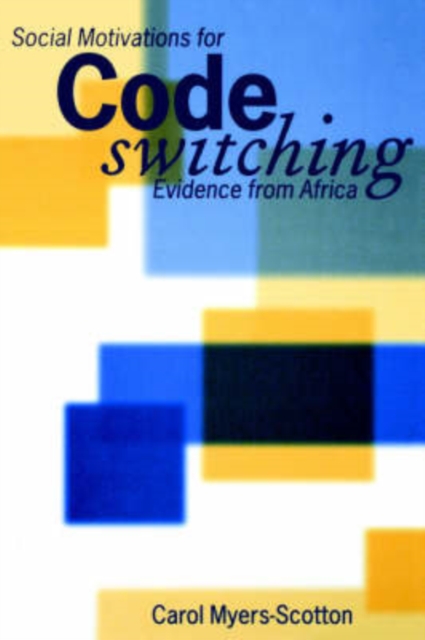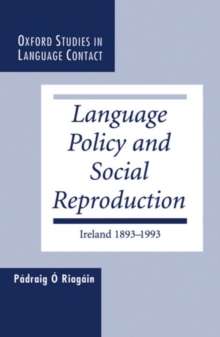
Social Motivations for Codeswitching : Evidence from Africa Paperback / softback
by Carol (Professor of Linguistics and English, Professor of Linguistics and English, Un Myers-Scotton
Part of the Oxford Studies in Language Contact series
Paperback / softback
Description
Codeswitching may be broadly defined as the use of two or more linguistic varieties in the same conversation.
Using data from multilingual African context, Carol Myers-Scotton advances a theoretical argument which aims at a general explanation of the motivations underlying the phenomenon.
She treats codeswitching as a type of skilled performance, not as the 'alternative strategy' of a person who cannot carry on a conversation in the language in which it began.
Speakers exploit the socio=psychological values associated with different linguistic varieties in a particular speech community: by switching codes speakers negotiate a change in social distance between themselves and other participants in a conversation.
Switching between languages has much in common with making stylistic choices within the same language: it is as if bilingual and multilingual speakers have an additional style at their command when they engage in codeswitching. _
Information
-
Out of stock
- Format:Paperback / softback
- Pages:190 pages, maps
- Publisher:Oxford University Press
- Publication Date:17/08/1995
- Category:
- ISBN:9780198239239
Information
-
Out of stock
- Format:Paperback / softback
- Pages:190 pages, maps
- Publisher:Oxford University Press
- Publication Date:17/08/1995
- Category:
- ISBN:9780198239239










